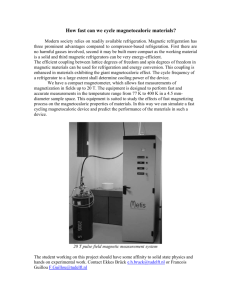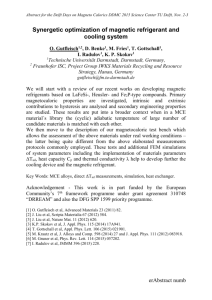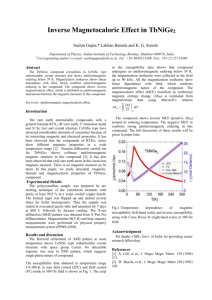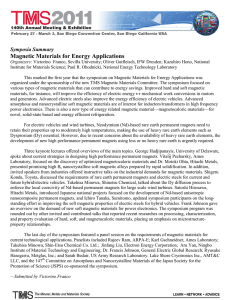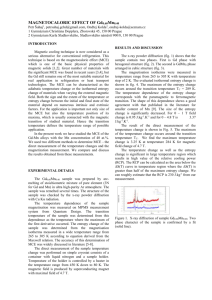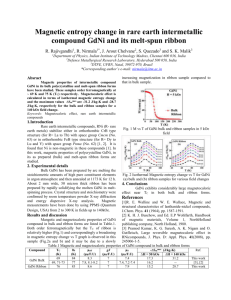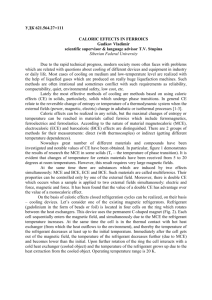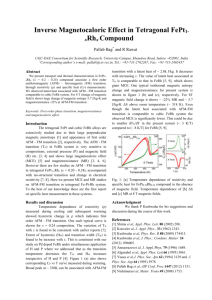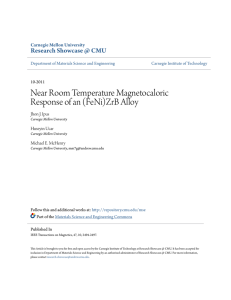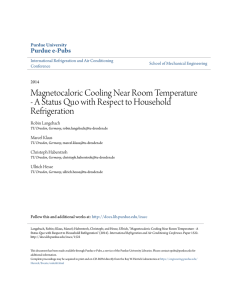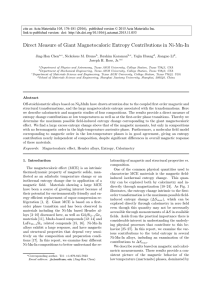What do we know about the magnetocaloric effect, and what... V.K. Pecharsky, Ames Laboratory and Department of Materials Science and
advertisement
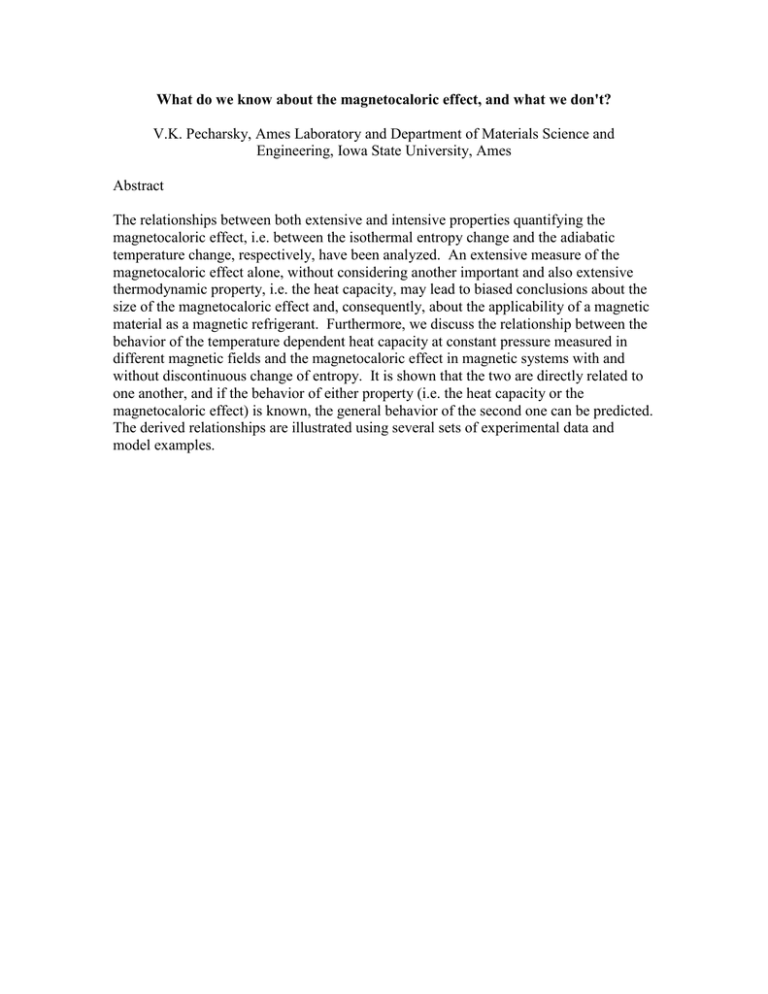
What do we know about the magnetocaloric effect, and what we don't? V.K. Pecharsky, Ames Laboratory and Department of Materials Science and Engineering, Iowa State University, Ames Abstract The relationships between both extensive and intensive properties quantifying the magnetocaloric effect, i.e. between the isothermal entropy change and the adiabatic temperature change, respectively, have been analyzed. An extensive measure of the magnetocaloric effect alone, without considering another important and also extensive thermodynamic property, i.e. the heat capacity, may lead to biased conclusions about the size of the magnetocaloric effect and, consequently, about the applicability of a magnetic material as a magnetic refrigerant. Furthermore, we discuss the relationship between the behavior of the temperature dependent heat capacity at constant pressure measured in different magnetic fields and the magnetocaloric effect in magnetic systems with and without discontinuous change of entropy. It is shown that the two are directly related to one another, and if the behavior of either property (i.e. the heat capacity or the magnetocaloric effect) is known, the general behavior of the second one can be predicted. The derived relationships are illustrated using several sets of experimental data and model examples.
